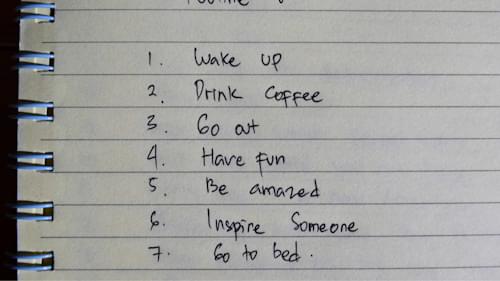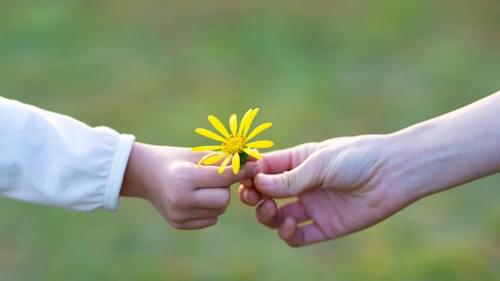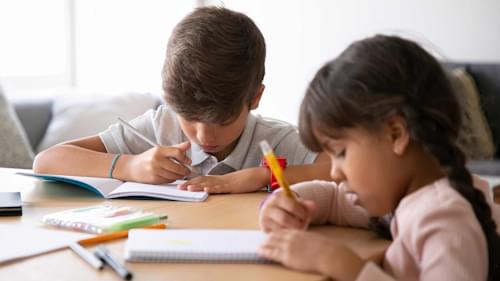How to Teach Your Kids to Manage Stress and Anxiety

Are you concerned about your child's stress and anxiety levels? As parents, it's natural to worry about our little ones and want them to lead happy, healthy lives. In today's fast-paced world, children often face numerous pressures that can contribute to feelings of stress and anxiety.
But fear not! You can teach your kids many techniques to help them manage these emotions effectively.
From understanding their emotions to incorporating fun activities into their routine, prepare for valuable insights on helping your kids thrive in the face of stress and anxiety! So let's dive in together and discover these effective strategies.
Help them understand emotions and provide a platform to express themselves

One of the most important steps in helping your kids manage stress and anxiety is to help them understand their emotions. Children may not always have the vocabulary or tools to express their feelings, leading to frustration and confusion. As a parent, it's crucial to provide a platform for them to express themselves openly and honestly.
- Create a safe space for your child to feel comfortable communicating their feelings without fear of judgment or criticism.
- Encourage open communication by actively listening when they want to talk and ensuring that you give them your undivided attention. This will show them that their thoughts and emotions are valid and valued.
- Teach your children about different emotions by using simple language and relatable examples. Help them identify what they're feeling—anger, sadness, fear, or happiness—so they can better understand how these emotions affect their overall well-being.
- Encourage creative outlets for self-expression, such as drawing, painting, writing in a journal, or even role-playing with stuffed animals.
Model healthy coping skills and set an example for your kids to follow

One of the most effective ways to teach your kids how to manage stress and anxiety is by modeling healthy coping skills. Children often learn by watching their parents, so you must set a positive example for them. Be mindful of how you react to stressful situations. Your children may adopt the same behaviors if you respond angrily or are frustrated. Instead, when you feel overwhelmed, try taking deep breaths or doing something that calms you down. This shows your kids that it's okay to take a step back and find healthy ways to deal with problems.
Additionally, make sure you prioritize self-care in your own life.
Show your kids that the best way to deal with stress is to take care of your body and mind.
Whether going for a run or practicing meditation, let them see that these activities are beneficial. Furthermore, communicate openly with your kids about emotions and stress. Encourage them to express themselves without judgment or criticism. Create a safe space where they can talk about their feelings and help them develop strategies for handling challenging emotions.
Remember that teaching your kids how to manage stress starts with setting a good example through healthy coping skills and open communication. By doing this, you can give them the skills they need to deal with the challenges of life.
Establish a daily routine; create consistency and time for relaxation

Establishing a daily routine is an effective way to help your kids manage stress and anxiety. Consistency in their day-to-day activities can give them a sense of structure and stability, which can help alleviate feelings of overwhelm.
- Set times for waking up, eating, homework, and bedtime. This promotes healthy habits and allows for self-care and relaxation.
- Incorporate activities into their routine that promote relaxation and stress reduction.
- Encourage them to engage in activities like reading, drawing, or practicing mindfulness techniques like deep breathing or progressive muscle relaxation.
Creating a daily routine may take trial and error, but it's worth the effort. It will benefit your children's mental well-being by reducing stress levels and teaching them valuable time-management skills they can carry into adulthood. So start today—establish a consistent daily routine for your kids, and watch how it positively impacts their ability to manage stress and anxiety!
Engage in physical activity; this can be anything from walking around the block to playing a sport together

Physical activity is a great way to help your kids manage stress and anxiety. Whether going for a walk around the block or playing a sport together, getting their bodies moving can have numerous benefits for their mental well-being.
Physical activity releases endorphins, known as the "feel-good" hormones. These hormones can boost moods and reduce feelings of stress and anxiety.
Additionally, exercise helps increase blood flow to the brain, improving cognitive function and focus.
Encouraging your children to participate in activities they enjoy will make it more likely that they'll want to continue being active. Perhaps they love swimming or riding bikes; finding something they are passionate about will keep them motivated and give them an outlet for any built-up tension.
Being active outdoors also provides an opportunity for fresh air and sunlight exposure, both of which have been shown to improve mood.
In addition, engaging in physical activity together as a family can strengthen bonds while creating lasting memories.
So whether it's shooting hoops at the local park or taking dance classes together, find ways to incorporate physical activity into your child's routine. Not only will it benefit their overall health, but it will also provide valuable tools for managing stress and anxiety throughout their lives.
Practice mindfulness techniques

Mindfulness techniques, deep breathing, and gradually relaxing your muscles can effectively deal with stress and anxiety.
When practiced regularly, these techniques can help children develop a sense of calmness and control over their emotions.
Deep breathing is a simple but effective method that involves taking slow, deep breaths and exhaling slowly through the mouth.
Encourage your child to focus on their breath as they inhale deeply, filling their lungs with air, and then release the breath slowly, feeling any tension or stress leaving their body.
Progressive muscle relaxation uses different groups of muscles throughout the body. Start by having your child tense a specific muscle group for a few seconds before releasing it. This exercise helps them become more aware of the tension in their bodies and teaches them how to let go of it.
By practicing these mindfulness techniques regularly with your child, you are giving them valuable tools to manage stress now and in the future. Remember to be patient with them as they learn these skills; it takes time to master mindfulness practices, but the benefits are worth it!
Make time for fun activities that they enjoy; this will help take their minds off of worrying thoughts
Engaging in fun activities that bring joy and happiness is a great way to distract children from worrying thoughts. It allows them to escape the stress and anxiety they may be experiencing and focus on something enjoyable instead.
Encourage your kids to pursue hobbies or interests that they genuinely enjoy. Let them explore their passions without judgment, whether it's playing a musical instrument, painting, dancing, or even playing video games. This will provide an outlet for their emotions and boost their self-esteem and confidence.
Spend quality time together as a family, engaging in these activities. Plan game nights, outdoor adventures like hiking or biking, or simply have a movie marathon snuggled up on the couch with some popcorn. Participating alongside your kids can strengthen your bond while creating happy memories together.
It's important to remember that these fun activities shouldn't feel forced or obligatory. Let your children guide their choices and follow what truly brings them joy. Supporting their interests will give them a sense of control over their happiness during stressful times.
By regularly incorporating fun into their lives, you teach your kids valuable coping skills to help them manage stress and anxiety. So go ahead and encourage laughter and playfulness in your household!
Allow them to take breaks during homework or other tasks when overwhelmed

Incorporating these 10 tips into your child's routine can help them manage stress and anxiety effectively. Every child is unique and may respond differently to various techniques, so finding what works best for them is important.
It is crucial to allow your kids to take breaks during homework or other tasks when they feel overwhelmed. Sometimes, the pressure of completing everything in one sitting can be too much for young minds. Encourage them to step away from work for a few minutes, engage in a different activity, or simply relax. Taking breaks helps alleviate stress and improves focus and productivity when they return to their tasks.
Teaching your children how to manage stress and anxiety at an early age sets them up for success in adulthood. By implementing these strategies, you're equipping them with lifelong skills that will enable them to navigate challenging situations with resilience and confidence.
So start incorporating these tips into your daily routines, and watch as your children become masters of managing stress and anxiety!

